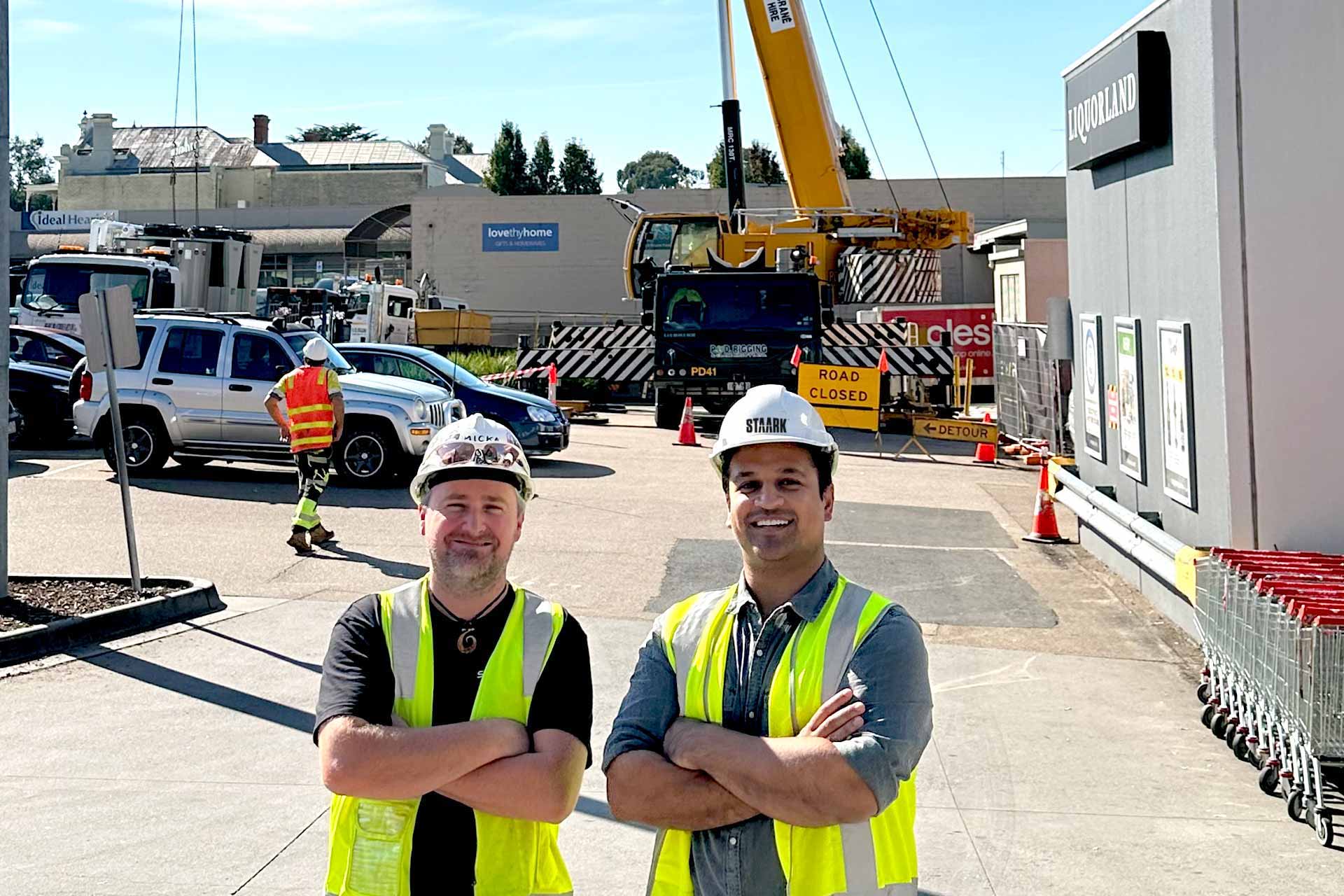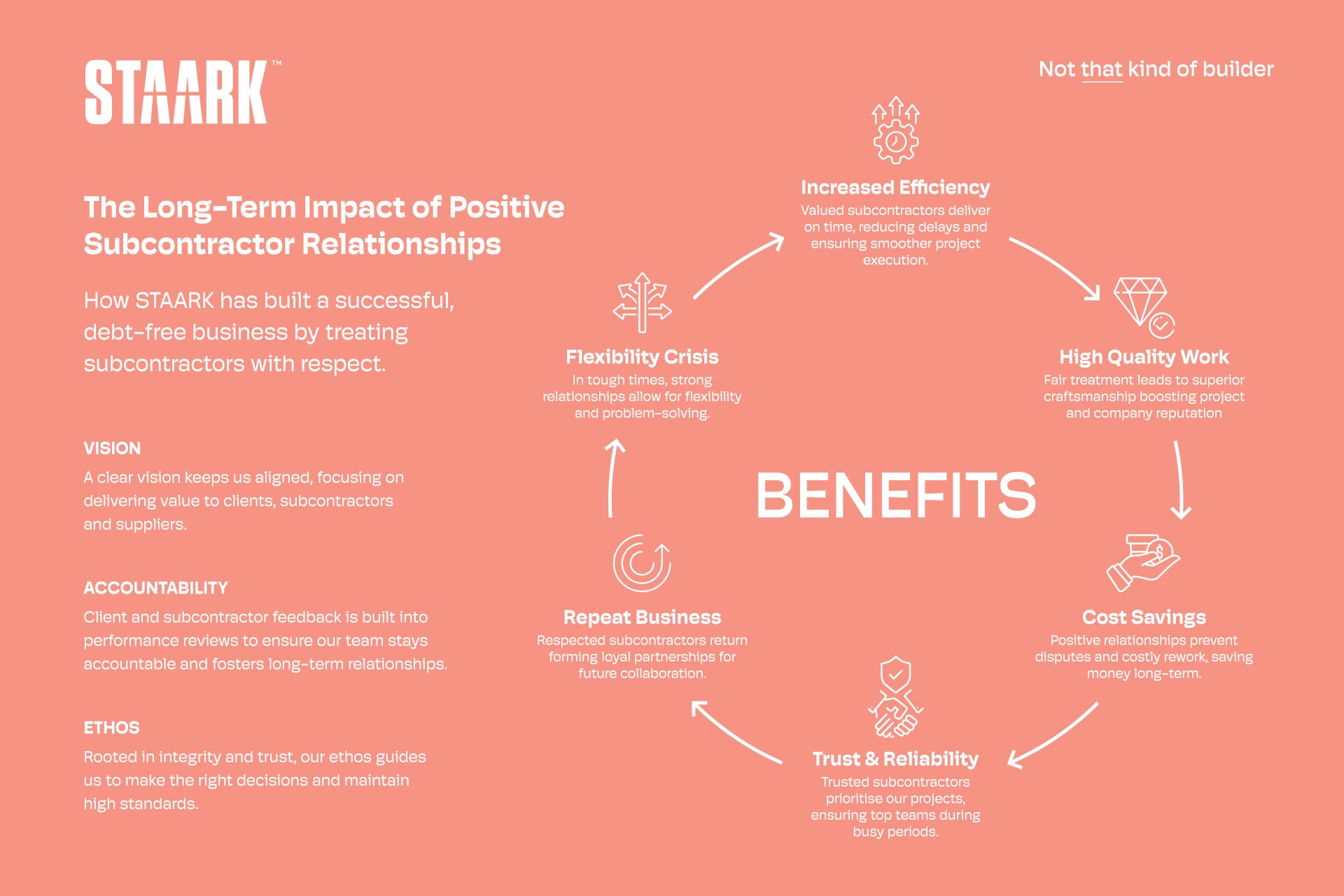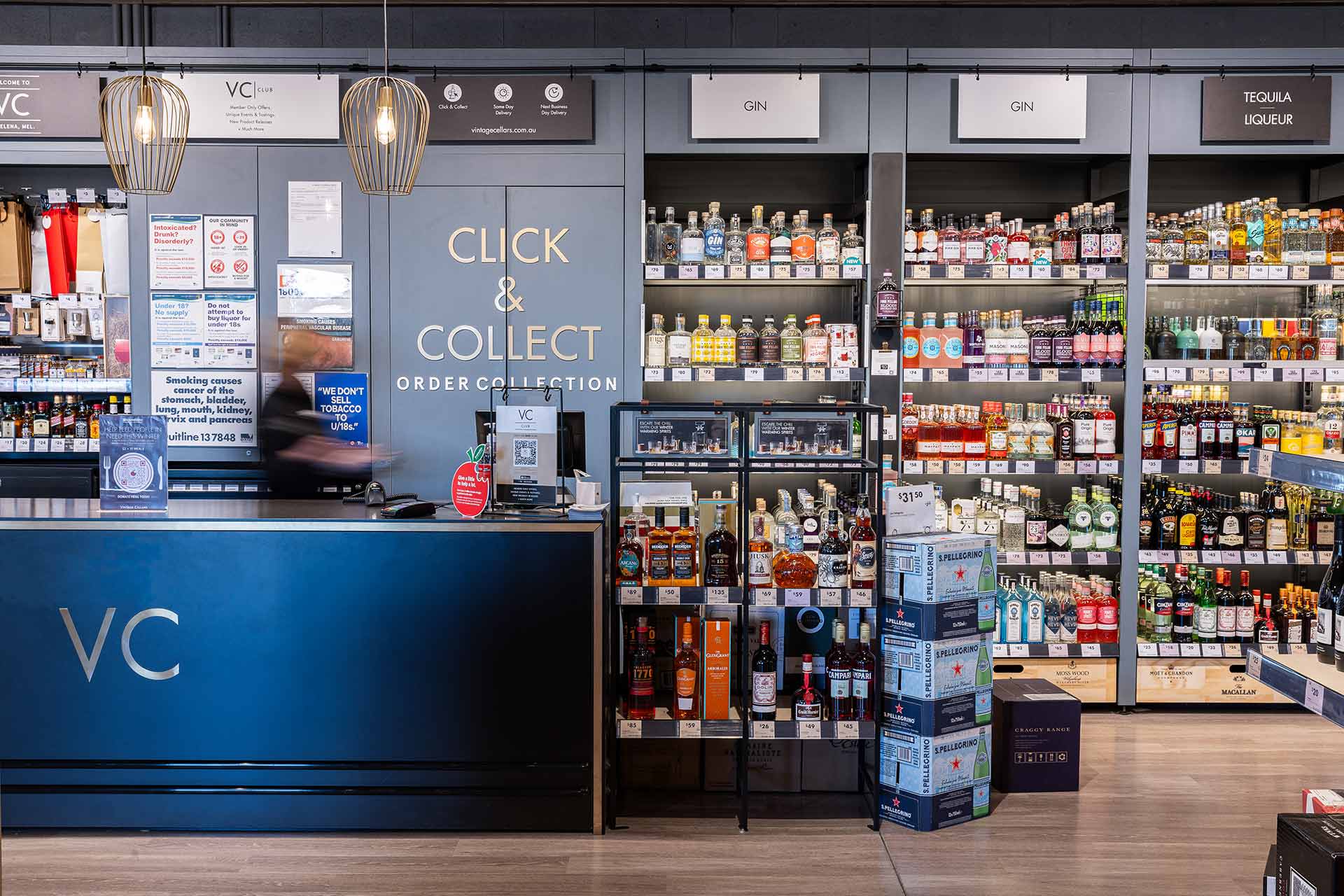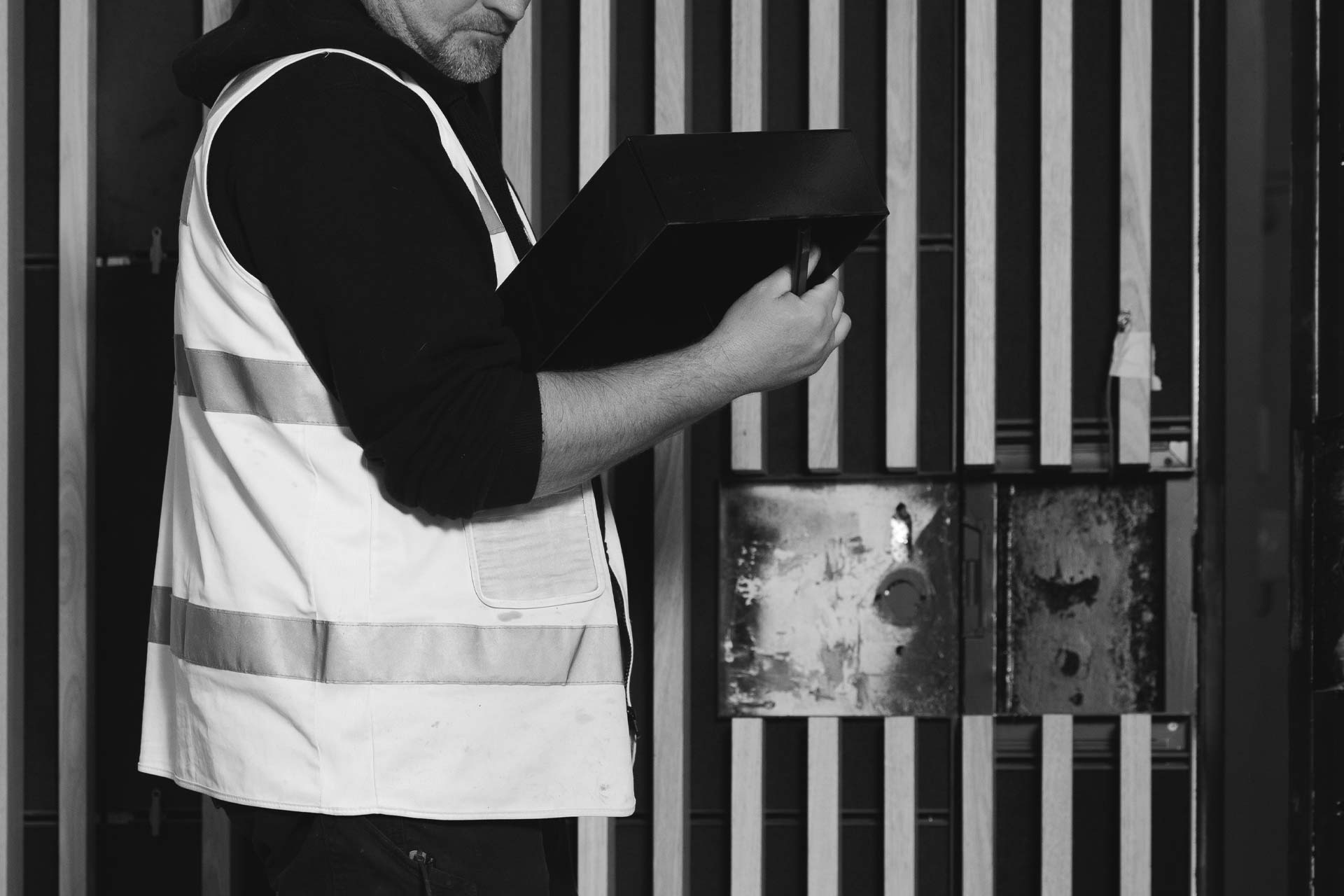In the construction industry, long-term relationships, trust, and integrity are the foundations of sustainable success.
Yet, many builders fall into the trap of chasing short-term profits, often at the expense of subcontractors, clients, and even their own teams. This approach creates a ripple effect, impacting not just the current project but future opportunities and relationships within the industry.
The Impact of Squeezing Subcontractors
Since COVID-19, builders across Australia have faced rising material and labour costs, creating financial pressures that are often passed down to subcontractors. Delayed payments or enforced acceptance of lower margins are just two of the consequences subcontractors face.
Subcontractors – typically smaller businesses taking on specific parts of a project – often don’t have the cash reserves to endure significant financial strain. According to the Reserve Bank of Australia, subcontractors are particularly vulnerable when larger construction companies delay payments or impose excessive cost-cutting measures. This financial stress can lead to a drop in work quality and project delays. Ultimately, when large builders face financial trouble, it ripples throughout the industry, hitting smaller subcontractors the hardest.
“Construction subcontractors are often caught in the crossfire when builders face financial difficulties, leading to broader impacts on project delivery and quality” (Pacific Consulting Group).
Profit at the Expense of Relationships
Many construction companies entered fixed-price contracts during a period of rising costs, squeezing their margins and, in some cases, causing financial losses. To manage this, some builders delay or withhold payments to subcontractors. The Reserve Bank of Australia reports that around 40% of the construction industry’s invoices are unpaid – a much higher figure than in other sectors.
This behaviour leaves subcontractors exposed to risk and increases the likelihood of insolvencies in the building sector. Cutting corners for short-term financial gain can severely damage relationships with subcontractors and clients alike. Treating these partners as mere profit sources, without adjusting for economic conditions, can undermine future business opportunities.
“Failure to adapt to rising costs in fixed-price contracts has contributed to the higher rates of insolvency seen across the construction industry” (Reserve Bank of Australia).
Reputation and Long-Term Success
Reports in the industry highlight that companies embracing best practices in procurement and building strong, long-term relationships with contractors and suppliers tend to be more resilient in times of economic uncertainty. Pacific Consulting Group notes that companies focusing on collaboration often enjoy profit margins 5-10% higher than their competitors.
In conclusion, this proves the importance of building relationships over pursuing short-term profits. Strong partnerships, rooted in trust and respect, are far more likely to generate sustainable success in the long run.
Further reading: STAARK’s Approach to the Subcontractor-Builder Relationship






